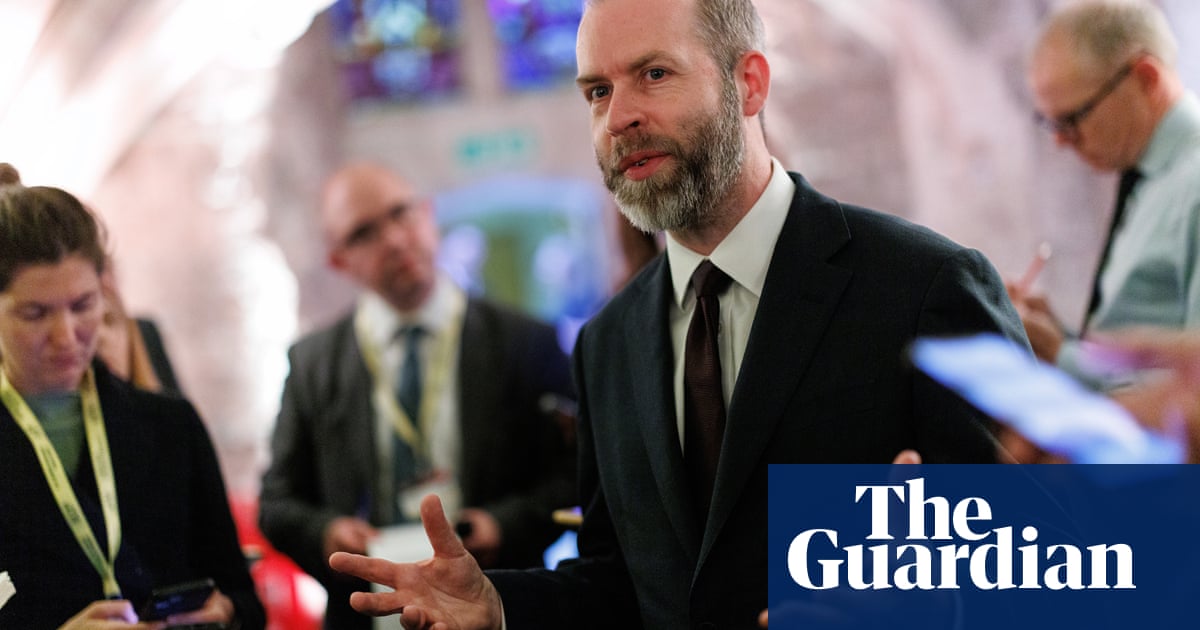Quarter of UK summit investment came before Labour win, analysis suggests

About a quarter of the investment announced by the government at its summit this week appears to have been secured or initiated before Labour came to power.
Ministers touted £63bn of investment at the summit on Monday, where they hosted hundreds of company bosses in a showcase of the UK’s pro-growth policies.
Jonathan Reynolds, the business secretary, trumpeted the “record-breaking investment total secured at today’s summit”, while Rachel Reeves, the chancellor, said: “After the investments secured as part of this summit, my optimism for Britain burns brighter than ever.”
But a Guardian analysis suggests that £16.5bn of that money had been secured before the election in July.
One of the most valuable investments, publicised in a Department for Business and Trade (DBT) press release, was the asset management firm Blackstone’s £10bn to build a datacentre in Byth, Northumberland.
However, the leader of Northumberland county council, Glen Sanderson, told the Guardian that the deal had first been announced by the Conservative-run council in April. He said it came as a surprise that the government had not credited the council.
The department also announced £2.5bn in investment from CyrusOne, a US datacentre developer. Plans for one of the CyrusOne datacentres were submitted to local authorities in 2022. Another £1.9bn datacentre investment, by the US company CloudHQ, appears to have been in development since 2018.
A DBT source stressed that while some of the details of projects were made public by the companies while the Conservatives were in office, the final investment announcements were accelerated under this government.
Another announcement was that the Turkish conglomerate Eren Holdings had confirmed a £1bn investment in the redevelopment of Shotton Mill in Deeside, north Wales. However, local authorities had approved the plans for the expansion in 2022.
The US nuclear engineering company Holtec was said to have made an investment of £325m in a new factory in South Yorkshire that would create hundreds of jobs. But the investment appears to have been planned before Labour came into government. The BBC reported in May that Holtec had shortlisted four sites in England for the factory and would make a final decision in autumn.
A new battery storage development in Hampshire listed as one of the deals secured at the summit had already been announced by BW Group in April last year.
Imperial College London’s WestTech Corridor project, a hub for science, technology and innovation, also featured on the list of investments, but had first been announced in March, months before Labour took power.
after newsletter promotion
A government spokesperson said: “Each deal announced at our record-breaking international investment summit were new, firm commitments being made by companies to invest in the UK as a result of actions taken by this government.
“The leaders of many of these companies have hailed our approach as a driving factor behind their decision to contribute to the £63bn of investment and nearly 38,000 jobs, delivering economic growth in every part of the UK.”
The industry minister, Sarah Jones, told the Commons after the summit: “£63bn doesn’t lie.”
Addressing the Tory former business minister Kevin Hollinrake, Jones said: “Let’s not forget that our summit on Monday was organised in a matter of weeks … yet we secured double the amount of investment compared to their summit last year.”
The department also highlighted a new £130m development by the consumer healthcare company Haleon in its announcement. However, the company announced in May that it would close one of its UK factories, leading to 435 job losses, and move production to Slovakia.
Monday’s summit was hosted at the 15th-century Guildhall in the heart of the City of London and attended by hundreds of bosses from global companies including Goldman Sachs, BlackRock and HSBC.
Executives were treated to an exclusive reception with King Charles, food prepared by the three-star Michelin chef Clare Smyth and a live performance from Elton John.
Related
Why investing in women is a vital next step for…
Get Nadine White's Race Report newsletter for a fresh perspective on the week's newsGet our free newsletter from The Independent's Race CorrespondentGet our fre
Business secretary signals major shift on electric car policy to…
In a determined effort to retain Nissan’s manufacturing presence in Britain, Business Secretary Jonathan Reynolds has vowed to implement “substantial c
Joint Statement: Business Secretary and Fujitsu Services Ltd
Business and Trade Secretary Jonathan Reynolds today (Friday 7 March) met chiefs for Fujitsu in Tokyo to begin talks over the cost of redress for victims of th
UK foreign secretary backs multilateral defence funding for Europe
UK foreign secretary David Lammy has said that a new multilateral fund will be needed to secure Europe’s defence as he confirmed that Britain is “open to”













